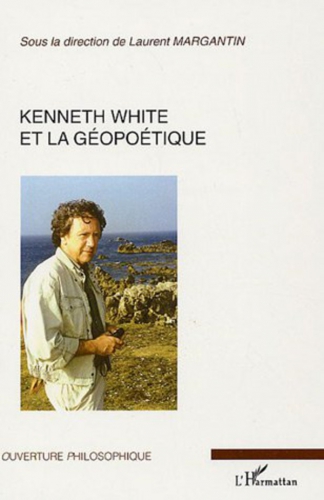 Pour White, à la base de toute culture, il y a une poétique, qui est une "pratique fondatrice". "Dans la culture grecque classique, si la politique est une préoccupation première, la culture n’existerait pas, ne respirerait pas sans la poésie océanique d’Homère : l’agora est baignée de ses vagues." Dans la culture chinoise, il y a le Livre des odes, et à côté de la pensée confucianiste centrée sur des questions éthiques, il y a l’espace poétique ouvert par des poètes errants inspirés par le bouddhisme et le taoïsme. Dans notre culture moderne toutefois, la poétique n’est qu’une "discipline" reléguée au fond des universités, et qui n’intéresse que les spécialistes du langage voire de la métrique.
Pour White, à la base de toute culture, il y a une poétique, qui est une "pratique fondatrice". "Dans la culture grecque classique, si la politique est une préoccupation première, la culture n’existerait pas, ne respirerait pas sans la poésie océanique d’Homère : l’agora est baignée de ses vagues." Dans la culture chinoise, il y a le Livre des odes, et à côté de la pensée confucianiste centrée sur des questions éthiques, il y a l’espace poétique ouvert par des poètes errants inspirés par le bouddhisme et le taoïsme. Dans notre culture moderne toutefois, la poétique n’est qu’une "discipline" reléguée au fond des universités, et qui n’intéresse que les spécialistes du langage voire de la métrique.
Il est assez symptomatique que, dans un numéro récent du Magazine littéraire consacré à la " nouvelle poésie française ", aucune place n’ait été faite à un courant fort et vivant de l’écriture poétique contemporaine apparu dans les années quatre-vingt. Certes, le phénomène n’est pas spécifiquement " français ", il a plutôt une vocation européenne et internationale, dans l’esprit de cette Weltliteratur que Goethe appelait de ses voeux. De plus, le fondateur de ce courant est Ecossais, et vit à l’écart des groupes consacrés par un certain milieu littéraire. Cette absence révèle cependant la nature de l’activité poétique en France aujourd’hui, qui s’attache avant tout à des questions formelles et à des jeux de langage en se désintéressant la plupart du temps des questions de fond concernant le rôle essentiel que peut jouer la poésie au sein d’une culture vivante, et sa capacité à générer un rapport au monde inédit, inconnu. Bref, l’absence de la géopoétique dans le paysage poétique français tel qu’il est représenté par les médias culturels est éloquente. Elle nous amène à penser qu’on voudrait bien que la poésie continue d’exister selon des critères nationaux, et sans se mêler véritablement de certaines questions extérieures à son champ, scientifiques et philosophiques ; qu’il faudrait, pour écrire de la poésie reconnue, être un bon formaliste, et ne pas trop s’aventurer hors de frontières tracées par la critique. Pourtant, même si les questions de style et d’écriture sont importantes, et même essentielles, il n’en demeure pas moins vrai que tout grand poème doit communiquer le sens d’un monde, et offrir une connaissance inédite du réel. C’est ce qu’avant Kenneth White un esprit comme Francis Ponge affirmait, tout en se défiant de la forme " poème ", pour lui impossible. Poème voudrait dire lyrisme - oui, mais lequel ? Le lyrisme à l’eau de rose, ou une parole énergique, riche en matières, cherchant une forme nouvelle pour contenir et articuler des énergies ? Ici il s’agit de voir comment un auteur apparu dans les années soixante, en pleine "nouvelle poésie française", a tâché d’ouvrir un nouvel espace, qualifié de géopoétique.
*
C’est en 1989 que Kenneth White a fondé l’Institut international de géopoétique. Dans le texte inaugural de l’Institut on peut lire ces lignes qui résument pour une bonne part tout le travail antérieur de White : "Ce qui marque cette fin du XXe siècle, au-delà de tous les bavardages et de tous les discours secondaires, c’est le retour du fondamental, c’est-à-dire du poétique. Toute création de l’esprit est, fondamentalement, poétique. Il s’agit de savoir maintenant où se trouve la poétique la plus nécessaire, la plus fertile, et de l’appliquer. Si, vers 1978, j’ai commencé à parler de "géopoétique", c’est, d’une part, parce que la terre (la biosphère) était, de toute évidence, de plus en plus menacée, et qu’il fallait s’en préoccuper d’une manière à la fois profonde et efficace, d’autre part, parce qu’il m’était toujours apparu que la poétique la plus riche venait d’un contact avec la terre, d’une plongée dans l’espace biosphérique, d’une tentative pour lire les lignes du monde." Dans la suite de ce texte, White ouvre un espace de prospection inédit, dans lequel " se rencontrent des penseurs et des poètes de tous les temps et de tous les pays ". Sont cités les noms d’Héraclite ("l’homme est séparé de ce qui lui est le plus proche"), de Hölderlin ("poétiquement vit l’homme sur la terre"), de Wallace Stevens ("les grands poèmes du ciel et de l’enfer ont été écrits, reste à créer le poème de la terre"), mais aussi du taoïste Tchouang-Tseu et du poète japonais Matsuo Bashô. On est bien loin - et cela donnera peut-être un peu le vertige à nos "nouveaux poètes français" - d’un contexte national et historique quelconque.
Ce texte inaugural de l’institut est en quelque sorte un " condensé " de toute la démarche géopoétique, et de tout le parcours de Kenneth White. On y retrouve le désir de dépasser la "littérature", une dimension culturelle internationale, et surtout une orientation que l’on peut qualifier de philosophique, ce qui manque avant tout à la culture contemporaine.
*
Kenneth White est né en 1936 à Glasgow, mais, raconte-t-il, ses parents ont senti assez tôt le besoin de quitter la métropole pour aller s’établir à Fairlie, petit village situé sur la côte ouest de l’Ecosse. Déjà la sortie d’un contexte : historique et économique (la réalité fortement industrielle de Glasgow décrite dans un chapitre du premier livre publié de White, En toute candeur), mais aussi culturel : c’est là, face à la mer et à l’île d’Arran, que l’esprit formé à la culture chrétienne s’ouvre à la beauté du monde, faisant naître le besoin d’un espace de réflexion inédit où cette expérience d’ouverture au-dehors soit exprimée et conçue comme l’origine de ce qu’on pourrait appeler une "culture à venir".
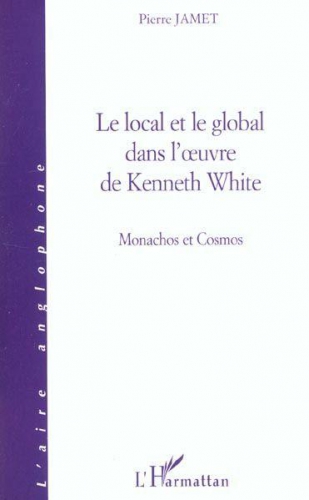 A dix-huit ans, White revient à Glasgow pour étudier. Mais très vite l’espace de prospection intellectuelle s’étend à un champ géographique plus vaste, comme en témoigne le parcours biographique et universitaire de White : après quelques années d’études à l’Université de Glasgow (littérature, philosophie et latin), il part pour l’Allemagne (Münich), où il découvre Jaspers, Husserl et surtout Heidegger. Puis il passe plusieurs années en France, où il s’installera (il vit actuellement en Bretagne).
A dix-huit ans, White revient à Glasgow pour étudier. Mais très vite l’espace de prospection intellectuelle s’étend à un champ géographique plus vaste, comme en témoigne le parcours biographique et universitaire de White : après quelques années d’études à l’Université de Glasgow (littérature, philosophie et latin), il part pour l’Allemagne (Münich), où il découvre Jaspers, Husserl et surtout Heidegger. Puis il passe plusieurs années en France, où il s’installera (il vit actuellement en Bretagne).
Les années parisiennes (1959-63) seront riches en révélations et en réalisations : c’est là qu’il découvre les surréalistes (après avoir beaucoup travaillé sur Rimbaud) et s’intéresse à la pensée orientale ainsi qu’aux cultures dites primitives. Les étudiants de la Sorbonne où il est lecteur d’anglais publient ses premiers poèmes sous le titre Wild Coal (souvenir de ses lectures géologiques en Ecosse), dont certains seront repris dans En toute candeur. Pendant quelques années, il travaille comme assistant à l’Université de Glasgow, puis ensuite de nouveau en France, à Pau, dans les Pyrénées, avant d’être prié par les autorités universitaires d’aller voir ailleurs, juste après les événements de 68 (on lui reprochait en fait un certain anticonformisme, qui s’était traduit par la création d’un groupe d’étudiants et d’enseignants autour d’une revue - Feuillage -, et l’application d’une pédagogie qui n’avait que peu à voir avec la tradition universitaire française, assez rigide et scolaire, encore plus dans les années 60). Une vingtaine d’années plus tard, il sera nommé à la chaire de poétique du vingtième siècle de l’Université de la Sorbonne, où il dirigera des séminaires de recherche autour de la pensée orientale, des auteurs anglais et américains modernes (Whitman, Thoreau, Pound, Mac Diarmid, etc.), fidèle à une pédagogie extravagante, transnationale et transculturelle ! White a toujours pratiqué trois écritures, et il s’en explique : la prose narrative (ce qu’il appelle le "voyage-voyance", récit d’une expérience et non fiction), le poème, et l’essai. Le poème est la pointe de la flèche, qui va droit au but, mais avant cela, pour acquérir assez d’énergie et de matière, il faut parcourir les chemins du monde et de la pensée. D’où la nécessité de voyager, pour ouvrir un espace de sensation et de respiration. D’où la nécessité d’analyser (White pratique la "culturanalyse"), qui doit permettre d’ouvrir peu à peu un espace conceptuel plus riche que le nôtre, qui s’effondre chaque jour un peu plus dans le bruit et la bêtise.
*
"La beauté est partout" : Loveliness is everywhere. Ce sont les premiers mots d’un poème de Kenneth White que j’aimerais citer en entier :
La beauté est partout
Même
sur le sol le plus dur
le plus rebelle
la beauté est partout
au détour d’une rue
dans les yeux
sur les lèvres
d’un inconnu
dans les lieux les plus vides
où l’espoir n’a pas de place
où seule la mort
invite le cœur
la beauté est là
elle émerge
incompréhensible
inexplicable
elle surgit unique et nue -
à nous d’apprendre
à l’accueillir
en nous
Ce sentiment de la beauté exprimé dans "Le grand rivage" est véritablement à la base de la géopoétique. Dans le premier livre de Kenneth White, En toute candeur (sans doute celui qui m’est le plus cher car il y évoque les prémisses de son travail), on peut lire : "Ce n’est pas la communication entre l’homme et l’homme qui importe, mais la communication entre l’homme et le cosmos. Mettez les hommes en contact avec le cosmos, et ils seront en contact les uns avec les autres" . Or White évoque l’origine du mot grec cosmos, étroitement lié à la notion de beauté, et il appartient lui-même à toute une lignée culturelle anglo-américaine - on peut penser à Shaftesbury en Angleterre, mais aussi à Emerson, Thoreau, Whitman en Amérique - pour laquelle expérience esthétique et sensation du monde sont inséparables, et fusionnent dans l’écriture poétique. Dans ce cadre-là, l’écriture engage l’écrivain et le lecteur dans un tout autre espace que le seul " espace littéraire ", cloisonné, renfermé sur son propre questionnement, et ouvre la conscience à la possibilité d’un champ existentiel nouveau. La poésie n’est pas simplement affaire de mots et de "style" (celui dont se parent les dits grands écrivains comme de plumes de paon), mais une affirmation du "corps-esprit" dans un monde donné, monde fondé justement sur le refus du poétique et la négation de la beauté (et même de l’idée de beauté).
 La géopoétique "dénote" donc dans un contexte culturel - surtout celui de la fin des années quatre-vingt - au sein duquel comptent avant tout les grands solipsistes et les contempteurs de la condition humaine que sont Beckett, Cioran ou bien Ionesco, auteurs qui, pour un certain milieu littéraire, sont indépassables. Se mettre à l’écart de ce courant intellectuel très coté - Valéry parlait non sans raison de "Bourse de l’Art" - était s’exclure soi-même du monde littéraire et de ses pratiques, ce qu’avait fait d’ailleurs White assez tôt.
La géopoétique "dénote" donc dans un contexte culturel - surtout celui de la fin des années quatre-vingt - au sein duquel comptent avant tout les grands solipsistes et les contempteurs de la condition humaine que sont Beckett, Cioran ou bien Ionesco, auteurs qui, pour un certain milieu littéraire, sont indépassables. Se mettre à l’écart de ce courant intellectuel très coté - Valéry parlait non sans raison de "Bourse de l’Art" - était s’exclure soi-même du monde littéraire et de ses pratiques, ce qu’avait fait d’ailleurs White assez tôt.
L’œuvre de Kenneth White et la géopoétique bien comprise conduisent à un travail sur soi, travail d’abord solitaire, à l’écart de tout groupe, et sur plusieurs niveaux : travail primordial d’attention aux choses, sans lequel rien n’est possible (phase de silence) ; déconditionnement culturel (critique de toutes les valeurs sociales et religieuses) ; et puis travail sur le langage évidemment, vers une clarification de l’écriture (toutefois ouverte à une complexité élémentaire). Dans un second temps, une fois ce travail personnel engagé, des ramifications se font, un réseau naît et se forme peu à peu. C’est ce réseau - ou cet "archipel", pour reprendre un terme cher à White - qu’a permis de constituer l’Institut international de géopoétique. Dès la création de l’Institut de géopoétique, des connexions se sont faites entre les disciplines. Dans le premier numéro des Cahiers de géopoétique, on trouve une contribution d’un océanographe, Frédéric Ibanez, celle d’un biologiste, Alain Sournia, un article philosophique de Georges Amar, une étude de White sur Lapérouse, et des textes poétiques de Thoreau, Gary Snyder ou de Jean Morisset, par ailleurs géographe… De cet ensemble se dégage une nouvelle cohérence basée toute entière sur une poétique, car il existe entre les sciences, la philosophie et la poésie, n’en déplaise à Sokal et Brikmont, d’autres ponts que ceux de la simple analogie (parfois gratuite en effet) : l’homme de sciences peut avoir sa propre expérience poétique, et le poète peut s’intéresser aux sciences, ce qui peut les réunir est une expérience de la beauté de monde et une langue commune, qui elle n’est pas donnée d’avance. Exclure cela d’un revers de main polémique, c’est nier l’importance d’œuvres comme celles de Novalis ou de Goethe, qui essayèrent justement de dépasser le cloisonnement entre les disciplines, en vue d’une poétique nouvelle.
Il devenait évident qu’à travers les Cahiers un nouveau champ culturel était en train de se constituer et allait s’étendre, ce à quoi travailla Kenneth White en organisant des rencontres et des colloques, qui firent l’objet de publications à part. Mais dès 1992 le besoin se fit sentir d’ "archipéliser" l’Institut, et des ateliers de géopoétique virent le jour, à partir de contacts antérieurs entre Kenneth White et certains de ses lecteurs et amis. L’un des premiers centres fut l’Atelier du Héron en Belgique, puis le centre géopoétique de Belgrade, l’Atelier d’Aquitaine à Bordeaux et le centre écossais à Edinburgh. Il existe à présent une douzaine de centres à travers le monde.
*
Plus on approfondit l’œuvre de Kenneth White et le concept de géopoétique, et plus on se rend compte que celui-ci participe d’un courant profond de la culture occidentale, que des esprits comme White, mais aussi Caillois, Ponge ou bien encore Segalen ont repris et continué, et qui a surgi deux siècles plus tôt, justement en Allemagne. La géopoétique est sans aucun doute l’héritière directe de ce courant culturel exceptionnel dont il reste à mesurer la force et l’ampleur (ce qui sera fait une fois que la culture secondaire de l’époque se sera définitivement épuisée et qu’on aura vraiment remis en cause les compartimentages universitaires). Une nouvelle cartographie culturelle est en cours, dont les grandes lignes de force sont déjà plus ou moins connues.
 Qu’est-ce qui ne va pas, dans notre "culture" ? Dans un entretien, White dit, "pour parler rapidement", qu’il est parti de ce que Freud appelle le "malaise dans la civilisation" (das Unbehagen in der Kultur). Et il ajoute : "Ce malaise est toujours là, même si notre société essaie de le couvrir de bruits, même si on peut avoir l’impression que bientôt les esprits seront tellement "informatisés" qu’ils ne penseront plus rien. Moi, j’éprouvais un malaise, une angoisse, je me sentais étouffer dans un état de choses. J’ai essayé de sortir." Ce malaise culturel actuel, White en voit les sources dans deux grandes cultures - et en cela il est bien sûr nietzschéen : le christianisme et le rationalisme occidental. White critique ces systèmes de pensée de l’intérieur, puisqu’il a été plongé pendant toutes ses années d’enfance dans la culture chrétienne, et qu’il s’est intéressé de près à la philosophie européenne. La critique de la religion ne le conduit pas vers le nihilisme le plus "classique" (perte de toutes les valeurs, relativisation postmoderne de toutes les cultures), et d’un autre côté sa critique du rationalisme ne le mène pas vers un "irrationalisme" qui serait l’expression d’une nouvelle religion ou d’un lyrisme débridé. Bien au contraire. Il s’agit plutôt d’éviter tous les écueils rencontrés par une pensée qui s’opposerait ou "réagirait", pensée qui ne dure jamais parce qu’elle ne fonde rien.
Qu’est-ce qui ne va pas, dans notre "culture" ? Dans un entretien, White dit, "pour parler rapidement", qu’il est parti de ce que Freud appelle le "malaise dans la civilisation" (das Unbehagen in der Kultur). Et il ajoute : "Ce malaise est toujours là, même si notre société essaie de le couvrir de bruits, même si on peut avoir l’impression que bientôt les esprits seront tellement "informatisés" qu’ils ne penseront plus rien. Moi, j’éprouvais un malaise, une angoisse, je me sentais étouffer dans un état de choses. J’ai essayé de sortir." Ce malaise culturel actuel, White en voit les sources dans deux grandes cultures - et en cela il est bien sûr nietzschéen : le christianisme et le rationalisme occidental. White critique ces systèmes de pensée de l’intérieur, puisqu’il a été plongé pendant toutes ses années d’enfance dans la culture chrétienne, et qu’il s’est intéressé de près à la philosophie européenne. La critique de la religion ne le conduit pas vers le nihilisme le plus "classique" (perte de toutes les valeurs, relativisation postmoderne de toutes les cultures), et d’un autre côté sa critique du rationalisme ne le mène pas vers un "irrationalisme" qui serait l’expression d’une nouvelle religion ou d’un lyrisme débridé. Bien au contraire. Il s’agit plutôt d’éviter tous les écueils rencontrés par une pensée qui s’opposerait ou "réagirait", pensée qui ne dure jamais parce qu’elle ne fonde rien.
White cherche à dépasser la scission homme-monde (il critique fortement la rupture opérée par la théologie chrétienne entre la matière et l’esprit, et celle que l’on trouve chez Descartes entre la "chose pensante" et la "chose étendue"), et il cherche à dépasser également une scission arbitraire entre pensée et sensation, raison et intuition, poésie et science (scission caractéristique de notre culture). Il s’intéresse aux sciences (souvent plus qu’à la dite poésie actuelle), mais critique les excès de la science, le technicisme (ou soi-disant Progrès) qui ravage la planète aujourd’hui. Il étudie le bouddhisme, mais ne veut pas de "bouddhôlatrie" (refusant avec Nietzsche le "bouddhisme sentimental" qui allait, prédisait le philosophe, submerger l’Europe). Disons qu’il cherche une raison étendue par la sensation, par l’expérience du monde, et que d’un autre côté il travaille à une poésie informée par la réflexion philosophique voire épistémologique, et même par l’expérience mystique, qui s’accomplit la plupart du temps au-delà des discours et débats, et qui peut être aussi un moyen de se "déconditionner", de sortir d’un contexte intellectuel étouffant, et d’atteindre une vision plus large. La question qui revient toujours chez White comme chez l’un des écrivains qui a le plus compté pour lui, Henry David Thoreau, est la suivante : qu’est-ce qu’une réelle connaissance, c’est-à-dire qu’est-ce que la connaissance d’un homme habitant dans son corps et son esprit la Terre, après que tous les "grands récits" (chrétien et humaniste) se sont écroulés ? "Thoreau disait que "le vrai homme de science" connaîtra la nature mieux que les autres, non pas grâce à des techniques, à des méthodes (notre obsession), mais grâce à son "organisation plus fine". Pour Thoreau, la science, c’est-à-dire la connaissance, impliquait la capacité de sentir, goûter, voir, entendre d’une manière accrue. Pour lui, "l’homme le plus scientifique" serait l’homme le plus "sain", l’homme le plus "amical" (c’est-à-dire capable de sym-pathie, au sens fort), il posséderait une "sagesse indienne" plus parfaite. C’est cette augmentation de l’être liée à un assouplissement et un affinement du discours que j’appelle la biocosmopoétique. Nous avons pris le chemin inverse - vers la myopie, l’insensibilité, l’application limitée et la pensée bornée" .
C’est dans un écart total et passager - la cabane de Walden - que l’écrivain et charpentier américain Henry David Thoreau - aussi connu pour sa théorie et sa pratique de la "désobéissance civile" - a développé une conception de la connaissance radicalement nouvelle dans l’Amérique en proie comme l’Europe et bientôt l’Asie et le monde tout entier à la fièvre du Progrès. Dans les bois, Thoreau cherche une "pensée-sensation" ou ce que Coleridge appelle la "connaissance substantielle". La connaissance substantielle est "cette intuition des choses qui surgit quand nous nous trouvons unis au tout", tandis que la connaissance abstraite est l’image que se fait du monde une conscience séparée de celui-ci. "Cette "conscience séparée" ne peut donner lieu qu’à un langage mort, tout au plus utile pour la communication générale. La connaissance substantielle est, par contre, consubstantielle à l’être et donne lieu à un langage vivant qui est poésie. Elle constitue la seule véritable science (...)", écrit White dans L’esprit nomade. Pour Thoreau - et aussi pour White -, l’activité du poète peut conduire à une connaissance substantielle, si celui-ci sort d’un contexte culturel où la poésie et la science sont séparées. Il y a du "scientifique" chez Thoreau, mais en vue d’une écriture du monde qui dépasse la simple description ou l’observation. Il y a un "démon du savoir" chez lui, qui recueille lors de ses excursions toutes sortes d’observations concernant la faune et la flore, mais la forme de géo-gnosie qu’il recherche doit être aussi une "augmentation de la sensation de vie", exprimée dans une langue la plus simple et la plus incandescente possible. Et c’est bien le sentiment de la nécessité d’une langue, d’une langue poétique et ouverte au monde, qui, au fond, sépare le poète de l’homme de science.
 En 1987, Kenneth White a publié un livre intitulé L’esprit nomade, qui est son deuxième essai publié après La figure du dehors. Pendant plusieurs années, White avait surtout fait paraître des poèmes et des récits de voyage (ou ce qu’il appelle des way-books). Or, pendant les années 80, est parue une série d’essais rédigés par quelqu’un qui se définit comme un "poète-penseur". Dans ce livre, L’esprit nomade (une partie de sa thèse d’Etat sur le nomadisme intellectuel), la dernière partie est intitulée "Poétique du monde", et le dernier chapitre de cette section "Eléments de géopoétique ". Deux années plus tard, en 1989, White fonde l’Institut international de géopoétique. A beaucoup d’égards, "Eléments de géopoétique" peut être considéré comme le "programme" de l’Institut, ramassé, résumé dans le texte inaugural. Un autre ouvrage fondamental pour aborder ce que White appelle aussi la "poétique du monde" est Le plateau de l’albatros, introduction à la géopoétique paru en 1994.
En 1987, Kenneth White a publié un livre intitulé L’esprit nomade, qui est son deuxième essai publié après La figure du dehors. Pendant plusieurs années, White avait surtout fait paraître des poèmes et des récits de voyage (ou ce qu’il appelle des way-books). Or, pendant les années 80, est parue une série d’essais rédigés par quelqu’un qui se définit comme un "poète-penseur". Dans ce livre, L’esprit nomade (une partie de sa thèse d’Etat sur le nomadisme intellectuel), la dernière partie est intitulée "Poétique du monde", et le dernier chapitre de cette section "Eléments de géopoétique ". Deux années plus tard, en 1989, White fonde l’Institut international de géopoétique. A beaucoup d’égards, "Eléments de géopoétique" peut être considéré comme le "programme" de l’Institut, ramassé, résumé dans le texte inaugural. Un autre ouvrage fondamental pour aborder ce que White appelle aussi la "poétique du monde" est Le plateau de l’albatros, introduction à la géopoétique paru en 1994.
Pour White, à la base de toute culture, il y a une poétique, qui est une "pratique fondatrice". "Dans la culture grecque classique, si la politique est une préoccupation première, la culture n’existerait pas, ne respirerait pas sans la poésie océanique d’Homère : l’agora est baignée de ses vagues." Dans la culture chinoise, il y a le Livre des odes, et à côté de la pensée confucianiste centrée sur des questions éthiques, il y a l’espace poétique ouvert par des poètes errants inspirés par le bouddhisme et le taoïsme. Dans notre culture moderne toutefois, la poétique n’est qu’une "discipline" reléguée au fond des universités, et qui n’intéresse que les spécialistes du langage voire de la métrique.
Avons-nous même une "culture" d’ailleurs, une culture qui ne soit pas bien sûr un "produit de consommation courante" , fidèle en cela à l’esprit du temps ? On peut en douter, car il ne suffit pas d’accumuler les œuvres d’art et d’organiser des activités culturelles un peu partout pour qu’une société soit animée par une culture au sens fort du terme. " Pour qu’il y ait culture au sens fort du mot, écrit White, il faut que soit présent dans les esprits d’un groupe un ensemble de motifs et de motivations : lignes de force, "formes maîtresses", comme disait Montaigne, et cela, non au niveau du plus bas dénominateur commun ("sport", "loisirs", "distractions"), mais à un niveau qui incite la personne sociale à se travailler, à déployer ses énergies dans un espace exigeant. "
Toute culture a ce que White appelle un "motif unificateur". Mais toute tentative pour refonder une culture semble condamnée à échouer lorsqu’elle reprend des motifs épuisés : telle idole religieuse, tel personnage mythique ou historique, voire même tel principe abstrait (l’Homme) dans une conception de la culture tournée vers la fondation d’une polis moderne. "Si l’on se pose la question de savoir quel peut être un tel motif unificateur pour nous, aujourd’hui, dans le monde entier (puisque nous vivons maintenant, non plus à l’échelle de la tribu, ni même à l’échelle d’une nation, n’en déplaise aux nationalistes de tout poil, mais de la planète toute entière), je pense qu’une réponse s’impose : la terre même, sur laquelle nous tentons de vivre, et sans laquelle il n’y a pas de monde vivable."
Cette terre, il semble que même les érudits - dans un pays comme la France fortement conditionné par l’Université et marqué par un sens très étroit de la culture - soient en train de la redécouvrir. Je pense entre autres aux travaux très stimulants de géographes et philosophes comme Augustin Berque et Jean-Marc Besse, qui combinent érudition littéraire et connaissances scientifiques, contribuant ainsi à ouvrir un nouveau contexte culturel. On sent depuis environ une vingtaine d’années que ce manque d’une culture attachée à la réalité terrestre et à l’espace se fait cruellement sentir. Dans le domaine littéraire, des écrivains d’une génération précédente, comme Julien Gracq ou Philippe Jaccottet, en étant extérieurs au mouvement géopoétique, ont préparé le terrain. Cette nouvelle "géographie poétique", pour reprendre une expression de Novalis, ne demande qu’à être poursuivie et approfondie, dans un espace qui ne peut être seulement littéraire, mais qui engage un autre rapport au monde qui nous entoure, ici et maintenant.
Toutefois, White est très peu sensible à la "poésie du terroir" que l’on trouve parfois chez Heidegger, et se méfie d’un rapport à la nature trop sentimental. Il emploie surtout le terme "monde", qui ouvre un espace plus large, un horizon, et se dégage de tout sentimentalisme écologique ainsi que d’un attachement à la soi-disante pureté d’un lieu auquel l’individu devrait rester lié pour toujours, fidèle à une identité prédéterminée par d’autres (ancêtres, textes). Il faut évidemment aujourd’hui éviter à tout prix l’écueil de la "terre-terroir" et d’un attachement sentimental au sol, qui ne conduit, en termes culturels, qu’à du ressassement folklorique. Ecossais d’origine, White situe l’Ecosse dans un contexte plus large, l’origine étant elle-même mélange, et, d’une certaine manière, horizon. L’Ecosse, archipel initial, espace originellement pluriel et dont la géographie reste toujours complexe, à découvrir. Lieu où il ne s’agit pas de revenir, mais espace qu’il faut tenter de déployer, de projeter, espace en devenir.
 Comment peut se déployer pour nous aujourd’hui un "monde poétique" ? White insiste sur l’activité nomade, "dérivante", de celui qui cherche un tel monde. Il doit y avoir déplacement, autant physique qu’intellectuel. Il ne suffit pas de bouger, de faire des voyages, il faut aussi que l’esprit migre, et accède à un espace d’énergies au-delà de tous les bavardages nationaux et de tout ce qui enferme l’esprit dans des limites étouffantes. "Habiter la terre en poète", selon l’expression de Hölderlin, c’est habiter un espace large et chargé d’énergies, où des rapprochements entre les cultures les plus diverses peuvent avoir lieu d’une manière parfois surprenante. La géopoétique est en effet un rapport à l’espace terrestre fluide, itinérant, jamais figé, d’où la notion si importante que l’on trouve développée chez White de "nomadisme intellectuel", et l’exercice personnel du voyage transposé littérairement dans l’écriture de way-books. Sans nomadisme, l’art s’appauvrit, finit par être emprisonné dans des cadres conceptuels et esthétiques trop étroits et trop rigides. L’art a besoin d’un rapport à l’espace qui soit à la fois riche et ouvert autant sur le plan conceptuel (ouverture à d’autres esthétiques, à d’autres formes) que sur le plan physique : l’esprit doit pouvoir vivre au milieu d’un monde de formes en mouvement, et en harmonie avec un univers sensible aussi large que possible et dont la carte est toujours à reprendre. La géopoétique est un concept opérateur, écrit White, indissociable d’une volonté de briser un espace circonscrit par les idéologies, les croyances, les politiques culturelles nationales, afin d’ouvrir l’esprit de chacun aux mouvements, aux métamorphoses du monde, de ce monde qui est pour l’homme ce qu’il y a de plus proche et ce dont il est le plus séparé.
Comment peut se déployer pour nous aujourd’hui un "monde poétique" ? White insiste sur l’activité nomade, "dérivante", de celui qui cherche un tel monde. Il doit y avoir déplacement, autant physique qu’intellectuel. Il ne suffit pas de bouger, de faire des voyages, il faut aussi que l’esprit migre, et accède à un espace d’énergies au-delà de tous les bavardages nationaux et de tout ce qui enferme l’esprit dans des limites étouffantes. "Habiter la terre en poète", selon l’expression de Hölderlin, c’est habiter un espace large et chargé d’énergies, où des rapprochements entre les cultures les plus diverses peuvent avoir lieu d’une manière parfois surprenante. La géopoétique est en effet un rapport à l’espace terrestre fluide, itinérant, jamais figé, d’où la notion si importante que l’on trouve développée chez White de "nomadisme intellectuel", et l’exercice personnel du voyage transposé littérairement dans l’écriture de way-books. Sans nomadisme, l’art s’appauvrit, finit par être emprisonné dans des cadres conceptuels et esthétiques trop étroits et trop rigides. L’art a besoin d’un rapport à l’espace qui soit à la fois riche et ouvert autant sur le plan conceptuel (ouverture à d’autres esthétiques, à d’autres formes) que sur le plan physique : l’esprit doit pouvoir vivre au milieu d’un monde de formes en mouvement, et en harmonie avec un univers sensible aussi large que possible et dont la carte est toujours à reprendre. La géopoétique est un concept opérateur, écrit White, indissociable d’une volonté de briser un espace circonscrit par les idéologies, les croyances, les politiques culturelles nationales, afin d’ouvrir l’esprit de chacun aux mouvements, aux métamorphoses du monde, de ce monde qui est pour l’homme ce qu’il y a de plus proche et ce dont il est le plus séparé.
Dans un chapitre d’Eléments de géopoétique, White évoque ce qu’il nomme une "physique de la parole" : selon lui, c’est à travers l’expérience de l’écriture poétique que peut se déployer un monde. Cependant, écrit White, "presque tout, à "notre" époque, va à l’encontre de la possibilité d’un langage puissant et clair, capable de dire une présence et une transparence." C’est que la parole poétique doit non seulement se dégager des discours ambiants (politiques, économiques, médiatiques) qui tournent à vide et génèrent les pires catastrophes, mais elle doit aussi aller au-delà de ce qu’on entend par "poésie", souvent expression d’"artistes" obsédés par un style prétendument "littéraire" et par des problèmes intimes. White reconnaît une parole poétique authentique chez des esprits comme Walt Whitman, à la recherche d’un "style absolument limpide, telle la glace sans tain... clarté, simplicité, pas de phrases brumeuses ou entortillées.... la transparence la plus parfaite", ou encore chez Thoreau, dans son Journal (qui ne sépare pas la vie quotidienne de l’expérience poétique, et même tente de confondre les deux) : "Le premier jour d’avril il a plu et la glace a fondu. Tôt le matin, dans un épais brouillard, j’ai entendu une oie égarée voler au-dessus de l’étang et cacarder comme l’esprit même du brouillard."
C’est une "méditation du monde" que nous offre la parole poétique, lorsque celle-ci est soutenue, stimulée, engendrée par un rapport au réel, telle la géopoétique. Ecoutons-la.



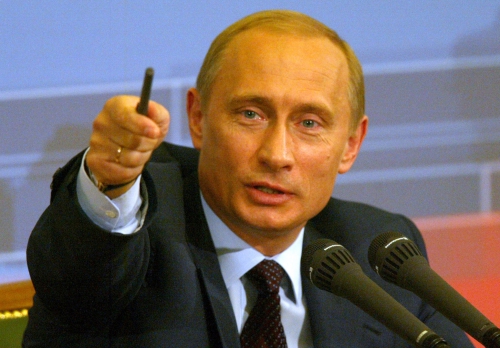
 Avec 54,2% des voix environ, le parti Russie Unie de Poutine et Medvedev s’impose largement, bien davantage que ce que prévoyaient les sondages, y compris ceux sortis des urnes, où le mouvement était plutôt annoncé aux alentours de 43% environ, alors qu’il est de dix points supérieurs au final. Cela alimentera toutes les spéculations, non sans raison, mais n’oublions pas qu’à l’époque d’Eltsine, les USA ne s’offusquaient pas de méthodes démocratiquement « particulières » lorsqu’il s’agissait de s’opposer aux communistes. Russie Unie obtient également 72% de la douma et 343 sièges, écrasant de tout son poids les trois formations politiques qui ont réussi à passer la barre fatidique nécessaire pour obtenir un groupe parlementaire.
Avec 54,2% des voix environ, le parti Russie Unie de Poutine et Medvedev s’impose largement, bien davantage que ce que prévoyaient les sondages, y compris ceux sortis des urnes, où le mouvement était plutôt annoncé aux alentours de 43% environ, alors qu’il est de dix points supérieurs au final. Cela alimentera toutes les spéculations, non sans raison, mais n’oublions pas qu’à l’époque d’Eltsine, les USA ne s’offusquaient pas de méthodes démocratiquement « particulières » lorsqu’il s’agissait de s’opposer aux communistes. Russie Unie obtient également 72% de la douma et 343 sièges, écrasant de tout son poids les trois formations politiques qui ont réussi à passer la barre fatidique nécessaire pour obtenir un groupe parlementaire.
 del.icio.us
del.icio.us
 Digg
Digg Dutch Alt-Right activists Bart and Michael have taken the initiative to set up regular meetups in the Netherlands people concerned with the future of Europe. Their first conference, Erkenbrand, will take place in Rotterdam at the end of September and include guests such as Millennial Woes and Roger Devlin.
Dutch Alt-Right activists Bart and Michael have taken the initiative to set up regular meetups in the Netherlands people concerned with the future of Europe. Their first conference, Erkenbrand, will take place in Rotterdam at the end of September and include guests such as Millennial Woes and Roger Devlin.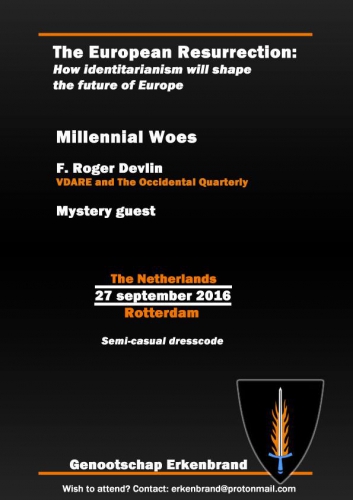

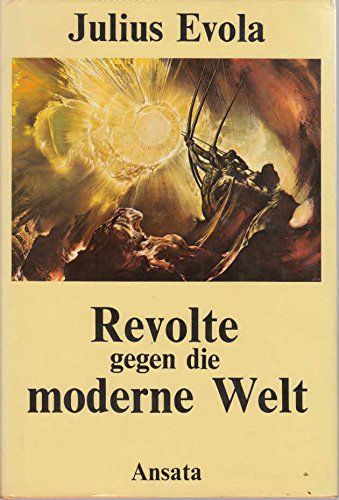 One thing which became clear to the Ahnenerbe, early on, was that all pre-Christian Indo-European cultures seemed to conceive of history as being cyclical rather than linear. In other words, all ancient “pagan” Indo-European cultures believed in an organic rhythmical order to both Time and Space. This conception of cyclical history – first expounded upon in modern times by Nikolai Danilevsky (1822-1885) and then Oswald Spengler (1880-1936) – stands in stark contrast to the Semitic-derived, “Abrahamic” belief in a purely linear or teleological conception of Time.
One thing which became clear to the Ahnenerbe, early on, was that all pre-Christian Indo-European cultures seemed to conceive of history as being cyclical rather than linear. In other words, all ancient “pagan” Indo-European cultures believed in an organic rhythmical order to both Time and Space. This conception of cyclical history – first expounded upon in modern times by Nikolai Danilevsky (1822-1885) and then Oswald Spengler (1880-1936) – stands in stark contrast to the Semitic-derived, “Abrahamic” belief in a purely linear or teleological conception of Time.
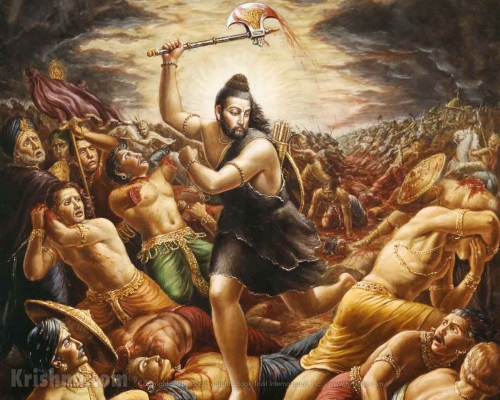

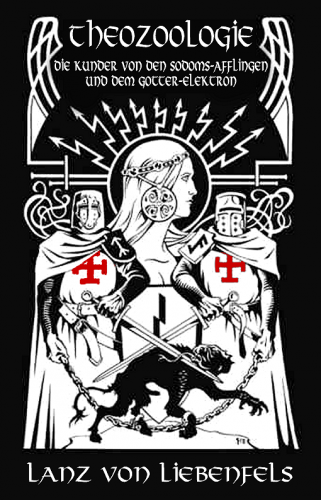 At the turn of the twentieth century there was a Catholic monk in Vienna who was a member of the old Teutonic Order. Disillusioned and disgusted with mainstream Christian dogma, he eventually left the monastery and assumed the name of “Lanz von Liebenfels.” He is most famous for writing Theozoology – a philosophical work that centers on the perennial earthly Struggle between Man(created in the image of God) and the hominid/apeling masses of the soulless, material world. It is said that von Liebenfels had an epiphany in his native Austria upon seeing a statue of a knight standing victoriously on top of a primate. Of course the knight symbolized a Noble, a true Man, a Man of the divine – and the primate symbolized the great bulk of animalistic humanity.
At the turn of the twentieth century there was a Catholic monk in Vienna who was a member of the old Teutonic Order. Disillusioned and disgusted with mainstream Christian dogma, he eventually left the monastery and assumed the name of “Lanz von Liebenfels.” He is most famous for writing Theozoology – a philosophical work that centers on the perennial earthly Struggle between Man(created in the image of God) and the hominid/apeling masses of the soulless, material world. It is said that von Liebenfels had an epiphany in his native Austria upon seeing a statue of a knight standing victoriously on top of a primate. Of course the knight symbolized a Noble, a true Man, a Man of the divine – and the primate symbolized the great bulk of animalistic humanity.

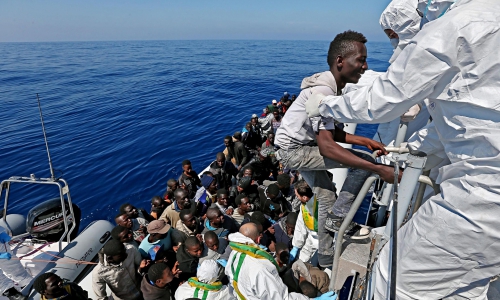
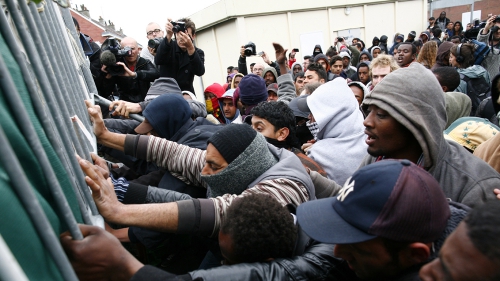
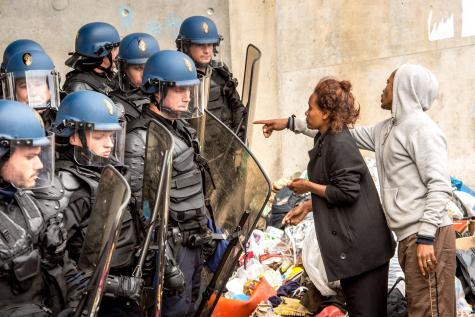

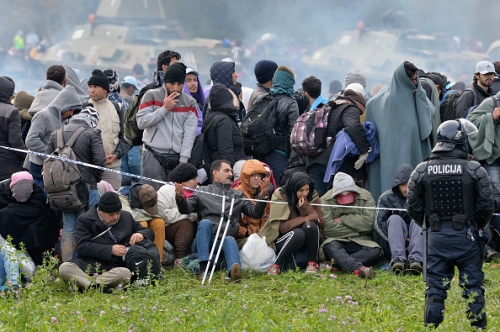
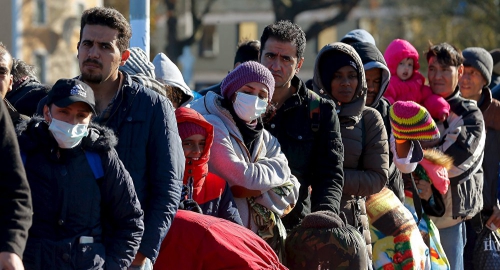



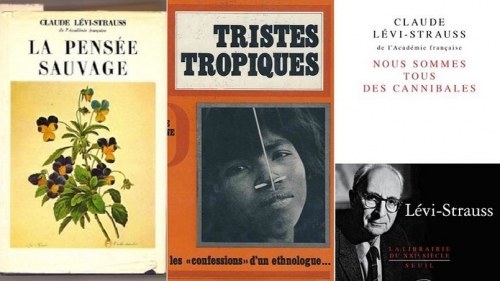
 Toute la subtilité de l'auteur, qui parle en scientifique et non en donneur de leçon de morale, consiste à rappeler qu'en l'état actuel de nos connaissances scientifiques, il n'y a aucune corrélation entre le phénomène génétique et le phénomène culturel, compris en sa large acceptation. On peut donc en première approche qualifier la pensée de Lévi-Strauss comme un structuralisme scientifique, a-raciste (et non anti-raciste comme on le verra par la suite). En effet là où le raciste proclame « La culture est conséquence déterminée de la biologie », Lévi-Strauss ne répond pas, comme les penseurs de l’UNESCO, héritiers de l'Universalisme chrétien dévoyé « Cette vision de l'Homme est infondée car immorale », mais que son manque de fondement provient de son manque de consistance scientifique, en tant qu'inférence logique déterminée et confirmée par l'expérience. Les sciences de la seconde moitié du XXe siècle n'auront malheureusement pas apporté plus de réponse à ces questions, déclarées taboues par les forces politiques qui gouvernent l'Occident depuis la sortie de la guerre.
Toute la subtilité de l'auteur, qui parle en scientifique et non en donneur de leçon de morale, consiste à rappeler qu'en l'état actuel de nos connaissances scientifiques, il n'y a aucune corrélation entre le phénomène génétique et le phénomène culturel, compris en sa large acceptation. On peut donc en première approche qualifier la pensée de Lévi-Strauss comme un structuralisme scientifique, a-raciste (et non anti-raciste comme on le verra par la suite). En effet là où le raciste proclame « La culture est conséquence déterminée de la biologie », Lévi-Strauss ne répond pas, comme les penseurs de l’UNESCO, héritiers de l'Universalisme chrétien dévoyé « Cette vision de l'Homme est infondée car immorale », mais que son manque de fondement provient de son manque de consistance scientifique, en tant qu'inférence logique déterminée et confirmée par l'expérience. Les sciences de la seconde moitié du XXe siècle n'auront malheureusement pas apporté plus de réponse à ces questions, déclarées taboues par les forces politiques qui gouvernent l'Occident depuis la sortie de la guerre.
 Lévi-Strauss distingue pour les besoins de ses démonstrations trois types de culture que chaque société peut, de son propre point de vue, soumettre à son entendement : 1. Celles qui sont ses contemporaines, mais qui se trouvent à un autre lieu du globe ; 2. Celles qui se sont manifestées dans un espace commun à la sienne, mais à des temps antérieurs ; 3. Enfin celles qui cumulent à la fois l’éloignement spatial et temporel. En ce qui concerne les cultures du troisième groupe, le problème s’avère réglé d’avance : quoiqu’elle compose, selon les chiffres de l’ethnologie moderne, 90 à 99% de la totalité des civilisations qui ont existé depuis l’éveil de l’homme à la culture, la majorité ne sera jamais connue de façon satisfaisante, particulièrement en raison du manque de traces écrites qui la caractérise. Toute assertion globale à leur endroit apparait dès lors douteuse pour l’esprit scientifique.
Lévi-Strauss distingue pour les besoins de ses démonstrations trois types de culture que chaque société peut, de son propre point de vue, soumettre à son entendement : 1. Celles qui sont ses contemporaines, mais qui se trouvent à un autre lieu du globe ; 2. Celles qui se sont manifestées dans un espace commun à la sienne, mais à des temps antérieurs ; 3. Enfin celles qui cumulent à la fois l’éloignement spatial et temporel. En ce qui concerne les cultures du troisième groupe, le problème s’avère réglé d’avance : quoiqu’elle compose, selon les chiffres de l’ethnologie moderne, 90 à 99% de la totalité des civilisations qui ont existé depuis l’éveil de l’homme à la culture, la majorité ne sera jamais connue de façon satisfaisante, particulièrement en raison du manque de traces écrites qui la caractérise. Toute assertion globale à leur endroit apparait dès lors douteuse pour l’esprit scientifique.
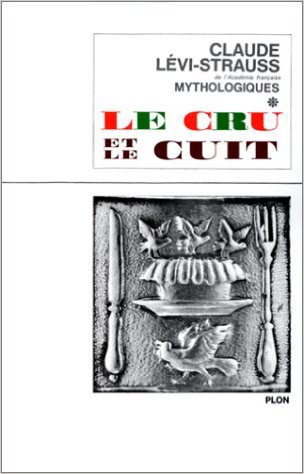 Lévi-Strauss affirme que c'est l'objectivité des critères de hiérarchisation, intime à la pensée occidentale, qui permettent de la fonder, et qui peuvent se ramener, selon Leslie White6, à deux principaux : 1. L’accroissement continuel de la quantité d’énergie disponible par habitant et 2. La protection et la prolongation de la vie humaine capacitive. Ainsi tout homme désire, sauf cas pathologique, prolonger sa vie en pleine santé sur Terre. Quelle réponse plus admirable a été fournie à cet enjeu que la médecine et le mode de vie occidental ne sauraient offrir ? Toutes les sociétés (c'est une structure universelle) requièrent un accroissement de connaissances, de techniques et de savoir-faire afin de modeler leurs environnements selon leurs normes. Quel outil plus raffiné et plus efficace à cet effet que sont la Mathématique, la Science et la Technique occidentales ? Nous pourrions même aller plus loin (mais ce serait déjà rentrer dans une forme de subjectivisme idéologique) en posant pour principe qu'il y a en tout être humain une Volonté d'émancipation individuelle du cadre des méta-structures collectives, et que l'individualisme européen triomphant et prosélyte offre un médium privilégié à cette émancipation.
Lévi-Strauss affirme que c'est l'objectivité des critères de hiérarchisation, intime à la pensée occidentale, qui permettent de la fonder, et qui peuvent se ramener, selon Leslie White6, à deux principaux : 1. L’accroissement continuel de la quantité d’énergie disponible par habitant et 2. La protection et la prolongation de la vie humaine capacitive. Ainsi tout homme désire, sauf cas pathologique, prolonger sa vie en pleine santé sur Terre. Quelle réponse plus admirable a été fournie à cet enjeu que la médecine et le mode de vie occidental ne sauraient offrir ? Toutes les sociétés (c'est une structure universelle) requièrent un accroissement de connaissances, de techniques et de savoir-faire afin de modeler leurs environnements selon leurs normes. Quel outil plus raffiné et plus efficace à cet effet que sont la Mathématique, la Science et la Technique occidentales ? Nous pourrions même aller plus loin (mais ce serait déjà rentrer dans une forme de subjectivisme idéologique) en posant pour principe qu'il y a en tout être humain une Volonté d'émancipation individuelle du cadre des méta-structures collectives, et que l'individualisme européen triomphant et prosélyte offre un médium privilégié à cette émancipation.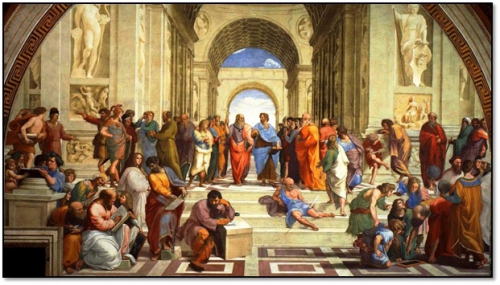
 Bien sûr le relativisme culturel dont fait preuve Lévi-Strauss pour les besoins de ses démonstrations parait de prime abord en contradiction avec son appel renouvelé à maintenir coûte que coûte nos spécificités civilisationnelles. Mais dans les temps troubles que nous traversons actuellement, le paradoxe est loin d’être insoluble.
Bien sûr le relativisme culturel dont fait preuve Lévi-Strauss pour les besoins de ses démonstrations parait de prime abord en contradiction avec son appel renouvelé à maintenir coûte que coûte nos spécificités civilisationnelles. Mais dans les temps troubles que nous traversons actuellement, le paradoxe est loin d’être insoluble.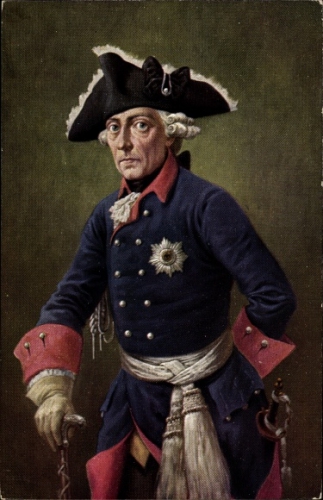 Das Problem des „großen Mannes“, vor allem des Staatsmannes, ist eines der brennendsten der Gegenwart. Wir haben nur Technokraten und keine Politiker mit echter Größe.
Das Problem des „großen Mannes“, vor allem des Staatsmannes, ist eines der brennendsten der Gegenwart. Wir haben nur Technokraten und keine Politiker mit echter Größe.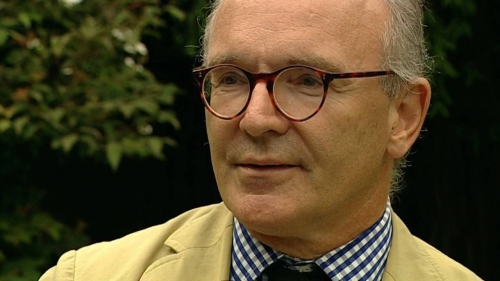
 Bücher über die Finanzkrise hat es viele gegeben. Keines warnt so eindringlich vor der Flüchtigkeit des Hier und Jetzt wie Martin Mosebachs „Mogador“. Eine Rezension.
Bücher über die Finanzkrise hat es viele gegeben. Keines warnt so eindringlich vor der Flüchtigkeit des Hier und Jetzt wie Martin Mosebachs „Mogador“. Eine Rezension.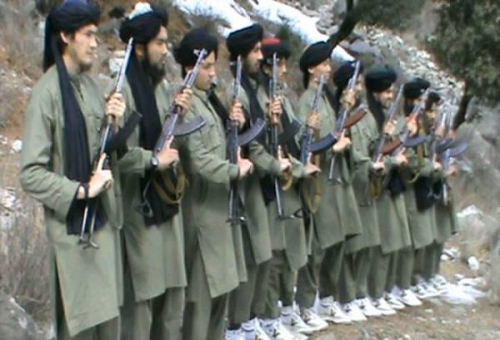

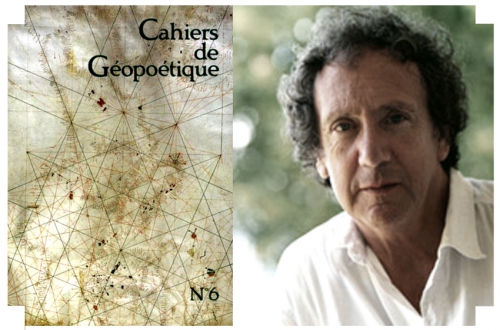
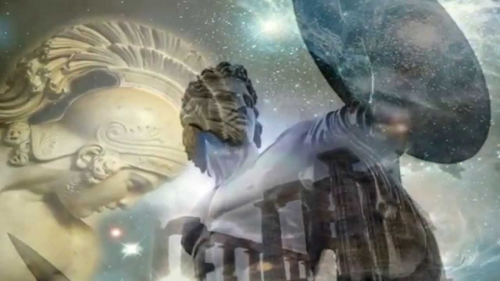
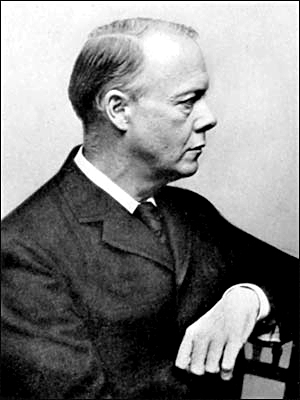 French and English racism was introduced to Germany by the Englishman Houston Stewart Chamberlain who had a seminal influence on Hitlerism. English Darwinism, a manifestation of the materialistic Zeitgeist that dominated England, was brought to Germany by Ernst Haeckel; although Blumenbach had already begun to classify race according to cranial measurements during the 18th century. Nonetheless, biological racism reflects the English Zeitgeist of materialism. It provided primary materialistic doctrines to dethrone Tradition. Its application to economics also provided a scientific justification for the “class struggle” of both the capitalistic and socialistic varieties. Hitlerism was an attempt to synthesis the English eugenics of Galton and the evolution of Darwin with the metaphysis of German Idealism. Italian Traditionalist Julius Evola attempted to counter the later influence of Hitlerian racism on Italian Fascism by developing a “metaphysical racism,” and the concept of the “race of the spirit,” which has its parallels in Spengler, whose approach to race is in the Traditionalist mode of the German Idealists.
French and English racism was introduced to Germany by the Englishman Houston Stewart Chamberlain who had a seminal influence on Hitlerism. English Darwinism, a manifestation of the materialistic Zeitgeist that dominated England, was brought to Germany by Ernst Haeckel; although Blumenbach had already begun to classify race according to cranial measurements during the 18th century. Nonetheless, biological racism reflects the English Zeitgeist of materialism. It provided primary materialistic doctrines to dethrone Tradition. Its application to economics also provided a scientific justification for the “class struggle” of both the capitalistic and socialistic varieties. Hitlerism was an attempt to synthesis the English eugenics of Galton and the evolution of Darwin with the metaphysis of German Idealism. Italian Traditionalist Julius Evola attempted to counter the later influence of Hitlerian racism on Italian Fascism by developing a “metaphysical racism,” and the concept of the “race of the spirit,” which has its parallels in Spengler, whose approach to race is in the Traditionalist mode of the German Idealists. Julius Evola, while repudiating the zoological primacy of “racism” as another form of materialism and therefore anti-Traditional, suggested that a “spiritual racism” is necessary to oppose the forces seeking to turn man into an amorphous mass; as interchangeable economic units without roots; what is now called “globalisation”.
Julius Evola, while repudiating the zoological primacy of “racism” as another form of materialism and therefore anti-Traditional, suggested that a “spiritual racism” is necessary to oppose the forces seeking to turn man into an amorphous mass; as interchangeable economic units without roots; what is now called “globalisation”. 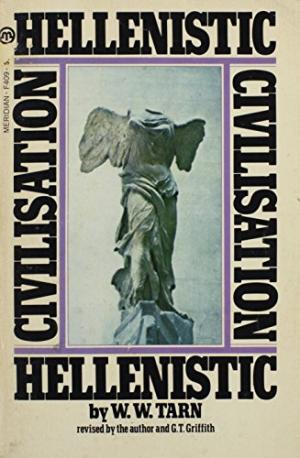 Here Livy is observing that occupiers among foreign peoples “go native”, as one might say. The occupiers are pulled downward, rather than elevating their subjects upward, not through genetic contact but through moral and cultural corruption. The Syrians, Parthians and Egyptians, had already become historically and culturally passé, or Fellaheen, as Spengler puts it. The Macedonian Greeks in those colonies succumbed to the force of etiolation. Alexander even encouraged this in an effort to meld all subjects into one Greek mass, which resulted not from a Hellenic civilisation passed along by multitudinous peoples, but in a chaotic mass from which Greece did not recover, despite the Greeks staying racially intact. Unlike the Jews in particular, the Greeks, Romans and other conquerors did not have the strength of Tradition to maintain themselves among alien cultures. Dr. W. W. Tarn stated of this process:
Here Livy is observing that occupiers among foreign peoples “go native”, as one might say. The occupiers are pulled downward, rather than elevating their subjects upward, not through genetic contact but through moral and cultural corruption. The Syrians, Parthians and Egyptians, had already become historically and culturally passé, or Fellaheen, as Spengler puts it. The Macedonian Greeks in those colonies succumbed to the force of etiolation. Alexander even encouraged this in an effort to meld all subjects into one Greek mass, which resulted not from a Hellenic civilisation passed along by multitudinous peoples, but in a chaotic mass from which Greece did not recover, despite the Greeks staying racially intact. Unlike the Jews in particular, the Greeks, Romans and other conquerors did not have the strength of Tradition to maintain themselves among alien cultures. Dr. W. W. Tarn stated of this process: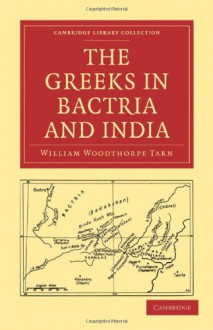 “In our time all Greece was visited by a dearth of children and generally a decay of population, owing to which the cities were denuded of inhabitants, and a failure of productiveness resulted, though there were no long-continued wars or serious pestilences among us. If, then, any one had advised our sending to ask the gods in regard to this, what we were to do or say in order to become more numerous and better fill our cities,—would he not have seemed a futile person, when the cause was manifest and the cure in our own hands? For this evil grew upon us rapidly, and without attracting attention, by our men becoming perverted to a passion for show and money and the pleasures of an idle life, and accordingly either not marrying at all, or, if they did marry, refusing to rear the children that were born, or at most one or two out of a great number, for the sake of leaving them well off or bringing them up in extravagant luxury. For when there are only one or two sons, it is evident that, if war or pestilence carries off one, the houses must be left heirless: and, like swarms of bees, little by little the cities become sparsely inhabited and weak. On this subject there is no need to ask the gods how we are to be relieved from such a curse: for any one in the world will tell you that it is by the men themselves if possible changing their objects of ambition; or, if that cannot be done, by passing laws for the preservation of infants”.
“In our time all Greece was visited by a dearth of children and generally a decay of population, owing to which the cities were denuded of inhabitants, and a failure of productiveness resulted, though there were no long-continued wars or serious pestilences among us. If, then, any one had advised our sending to ask the gods in regard to this, what we were to do or say in order to become more numerous and better fill our cities,—would he not have seemed a futile person, when the cause was manifest and the cure in our own hands? For this evil grew upon us rapidly, and without attracting attention, by our men becoming perverted to a passion for show and money and the pleasures of an idle life, and accordingly either not marrying at all, or, if they did marry, refusing to rear the children that were born, or at most one or two out of a great number, for the sake of leaving them well off or bringing them up in extravagant luxury. For when there are only one or two sons, it is evident that, if war or pestilence carries off one, the houses must be left heirless: and, like swarms of bees, little by little the cities become sparsely inhabited and weak. On this subject there is no need to ask the gods how we are to be relieved from such a curse: for any one in the world will tell you that it is by the men themselves if possible changing their objects of ambition; or, if that cannot be done, by passing laws for the preservation of infants”.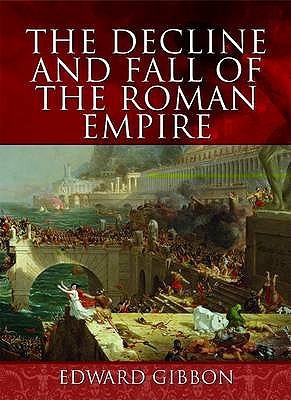 Alien immigration introduces cultural elements that dislocate the social and ethical basis of a Civilisation and aggravate an existing pathological condition. The English scholar Professor C. Northcote Parkinson, writing on the fall of Rome, commented that the Roman conquerors were subjected “to cultural inundation and grassroots influence”. Because Rome extended throughout the world, like the present Late Western, the economic opportunities accorded by Rome drew in all the elements of the subject peoples, “groups of mixed origin and alien ways of life”. “Even more significant was what the Romans learnt while on duty overseas, for men so influenced were of the highest rank”. Parkinson quotes Edward Gibbon’s Decline and Fall of the Roman Empire, referring to the Roman colony of Antioch:
Alien immigration introduces cultural elements that dislocate the social and ethical basis of a Civilisation and aggravate an existing pathological condition. The English scholar Professor C. Northcote Parkinson, writing on the fall of Rome, commented that the Roman conquerors were subjected “to cultural inundation and grassroots influence”. Because Rome extended throughout the world, like the present Late Western, the economic opportunities accorded by Rome drew in all the elements of the subject peoples, “groups of mixed origin and alien ways of life”. “Even more significant was what the Romans learnt while on duty overseas, for men so influenced were of the highest rank”. Parkinson quotes Edward Gibbon’s Decline and Fall of the Roman Empire, referring to the Roman colony of Antioch: 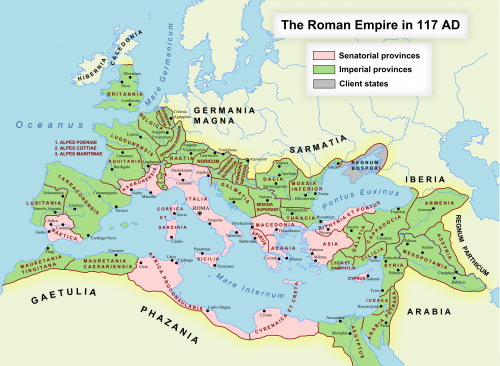
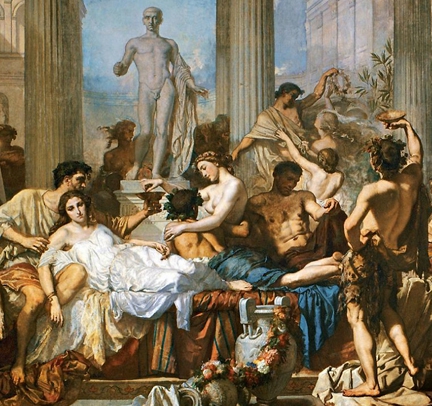 What is notable is not that the Romans miscegenated with Orientals, but that the uprooted, amorphous masses of the cities no longer adhered to the Traditions on which Roman civilisation was founded. The same process can be seen today at work in New York, London and Paris. Duff wrote of this, and we might consider the parallels with our own time:
What is notable is not that the Romans miscegenated with Orientals, but that the uprooted, amorphous masses of the cities no longer adhered to the Traditions on which Roman civilisation was founded. The same process can be seen today at work in New York, London and Paris. Duff wrote of this, and we might consider the parallels with our own time: 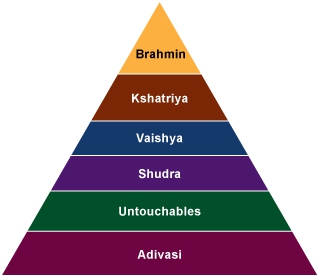 India is the most commonly cited example of a civilisation that decayed through miscegenation, the invading Aryans imparting a High Culture on India and then forever falling into decay because of miscegenation with the low caste “blacks”, or Dravidians. However, Genetic research indicates that the higher castes have retained to the present a predominately Caucasian genetic inheritance.
India is the most commonly cited example of a civilisation that decayed through miscegenation, the invading Aryans imparting a High Culture on India and then forever falling into decay because of miscegenation with the low caste “blacks”, or Dravidians. However, Genetic research indicates that the higher castes have retained to the present a predominately Caucasian genetic inheritance.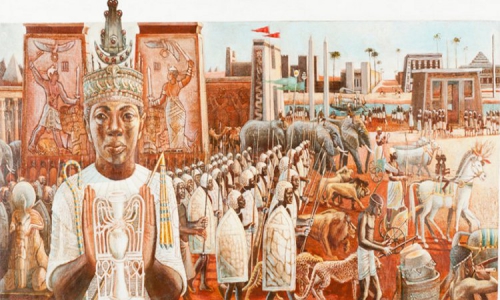
 Of Egypt’s chaos contemporary sages observed, as they did of Rome and India, a disintegration of authority, traditional religion, and the founding ethos and mythos around which a healthy culture revolves. Egypt was often subjected to invasions and to natural disasters. These served as catalysts for culture degeneration. The papyrus called The Admonitions of an Egyptian Sage, state that after invasions and what seems to have been a class war, Egypt fell apart, there was family strife, the noble families were dispossessed by the lowest castes, authority was disrespected and overthrown, lawlessness and plunder were the norm, and the nobility was attacked: “A man looks upon his son as an enemy. A man smites his brother (the son of his mother)”. Craftsmanship has become degraded: “No craftsmen work, the enemies of the land have spoilt its crafts”. There is rebellion against the Uraeus or Re. “A few lawless men have ventured to despoil the land of the kingship”. It appears that the foundations of Traditional society, god, monarch, family and land, have been caste asunder. Further, “Asiatics” have seized the land from the ancestral occupiers, and have so insinuated themselves into the Egyptian culture that one can no longer tell who is Egyptian and who is alien: “There are no Egyptians anywhere”. “Women are lacking and no children are conceived”. Evidently there is a population crisis; that perennial symptom of decay. The political and administrative structure has collapsed, with “no officers in their place”. The laws are trampled on and cast aside. “Serfs become lords of serfs”. The writings of the scribes are destroyed.
Of Egypt’s chaos contemporary sages observed, as they did of Rome and India, a disintegration of authority, traditional religion, and the founding ethos and mythos around which a healthy culture revolves. Egypt was often subjected to invasions and to natural disasters. These served as catalysts for culture degeneration. The papyrus called The Admonitions of an Egyptian Sage, state that after invasions and what seems to have been a class war, Egypt fell apart, there was family strife, the noble families were dispossessed by the lowest castes, authority was disrespected and overthrown, lawlessness and plunder were the norm, and the nobility was attacked: “A man looks upon his son as an enemy. A man smites his brother (the son of his mother)”. Craftsmanship has become degraded: “No craftsmen work, the enemies of the land have spoilt its crafts”. There is rebellion against the Uraeus or Re. “A few lawless men have ventured to despoil the land of the kingship”. It appears that the foundations of Traditional society, god, monarch, family and land, have been caste asunder. Further, “Asiatics” have seized the land from the ancestral occupiers, and have so insinuated themselves into the Egyptian culture that one can no longer tell who is Egyptian and who is alien: “There are no Egyptians anywhere”. “Women are lacking and no children are conceived”. Evidently there is a population crisis; that perennial symptom of decay. The political and administrative structure has collapsed, with “no officers in their place”. The laws are trampled on and cast aside. “Serfs become lords of serfs”. The writings of the scribes are destroyed. 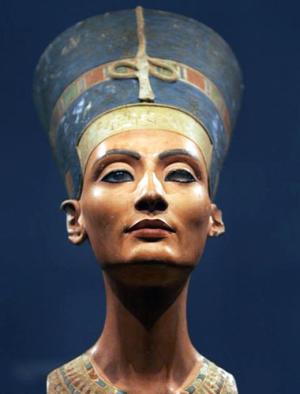 Ipuwer avers to Egypt having gone through such epochs, alluding to his saying nothing other than what others have said before his time.
Ipuwer avers to Egypt having gone through such epochs, alluding to his saying nothing other than what others have said before his time.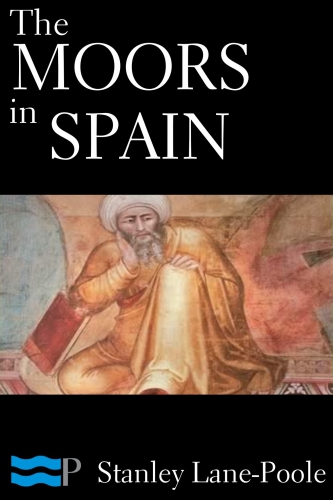 Caucasoid mtDNA sequences are at frequencies of 96% in Moroccan Berbers, 82% in Algerian Berbers and 78% in non-Berber Moroccans. The study of Esteban et al found that Moroccan Northern and Southern Berbers have only 3% to 1% Sub-Saharan mtDNA. Although difficult to define, since “Berber” is a Roman, not an indigenous term, the estimate for present day Morocco is 35% to 45% Berber, with the rest being Berber-Arab mixture. The primary point is that the Moroccan civilisation had ruling classes, whether pre-Islamic or Islamic, that remained predominantly Berber-Caucasian for most of its history, whether during its epochs of glory or of decline. Miscegenation does not account for the fall of the Moorish Civilisation.
Caucasoid mtDNA sequences are at frequencies of 96% in Moroccan Berbers, 82% in Algerian Berbers and 78% in non-Berber Moroccans. The study of Esteban et al found that Moroccan Northern and Southern Berbers have only 3% to 1% Sub-Saharan mtDNA. Although difficult to define, since “Berber” is a Roman, not an indigenous term, the estimate for present day Morocco is 35% to 45% Berber, with the rest being Berber-Arab mixture. The primary point is that the Moroccan civilisation had ruling classes, whether pre-Islamic or Islamic, that remained predominantly Berber-Caucasian for most of its history, whether during its epochs of glory or of decline. Miscegenation does not account for the fall of the Moorish Civilisation. 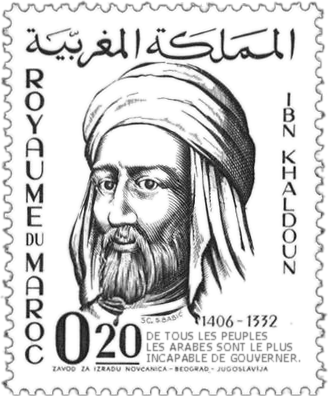 Ibn Khaldun begins from the organic character of the noble family in describing the analogous nature of cultural rise and fall, caused by a falling away of the original creative ethos with each successive generation:
Ibn Khaldun begins from the organic character of the noble family in describing the analogous nature of cultural rise and fall, caused by a falling away of the original creative ethos with each successive generation: Contrary to the beliefs of certain racial ideologues, including extreme Zionists and ultra-Orthodox Jews, this survival is not the result of bans on miscegenation. The Jewish law as embodied in the Torah, the first five books of the Old Testament, is based not on zoological race but on a race mythos. The Mosaic Law demands “race purity” in the Traditionalist sense; that of a community of belief in a heritage and a destiny.
Contrary to the beliefs of certain racial ideologues, including extreme Zionists and ultra-Orthodox Jews, this survival is not the result of bans on miscegenation. The Jewish law as embodied in the Torah, the first five books of the Old Testament, is based not on zoological race but on a race mythos. The Mosaic Law demands “race purity” in the Traditionalist sense; that of a community of belief in a heritage and a destiny. 





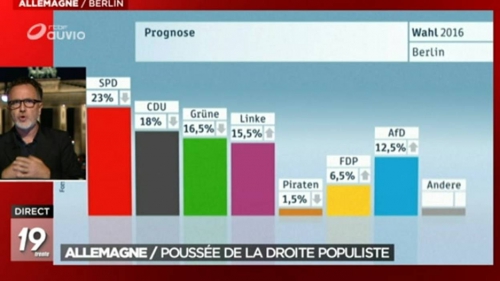
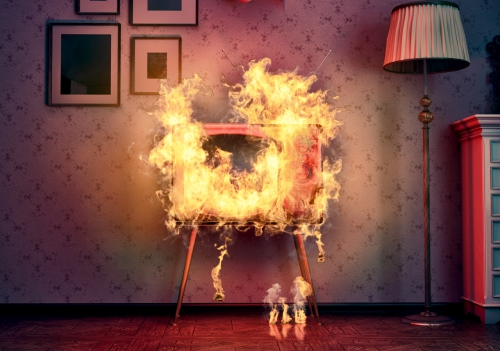
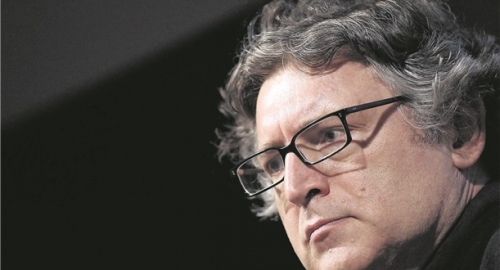
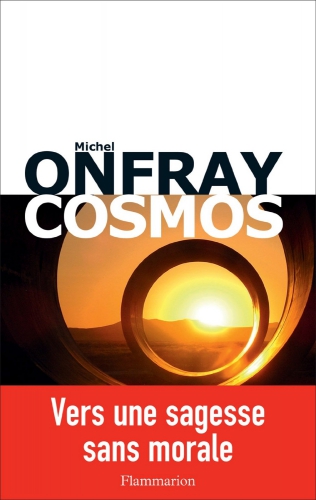 C'est d'abord le média de l'université populaire. J'ai souhaité reporter le lancement de ce média de juin à septembre parce que les interventions de mes amis de l'UP n'étaient pas prêtes à être mises en ligne. J'ai préféré commencer plus tard, avec ma trentaine d'amis, plutôt que très vite, avec moi seul. Je souhaite par la suite créer des rubriques autonomes pour mes amis qui souhaiteraient s'exprimer aussi. Nous commençons de façon expérimentale. Il n'existe aucune WebTV de ce type à cette heure me dit-on.
C'est d'abord le média de l'université populaire. J'ai souhaité reporter le lancement de ce média de juin à septembre parce que les interventions de mes amis de l'UP n'étaient pas prêtes à être mises en ligne. J'ai préféré commencer plus tard, avec ma trentaine d'amis, plutôt que très vite, avec moi seul. Je souhaite par la suite créer des rubriques autonomes pour mes amis qui souhaiteraient s'exprimer aussi. Nous commençons de façon expérimentale. Il n'existe aucune WebTV de ce type à cette heure me dit-on.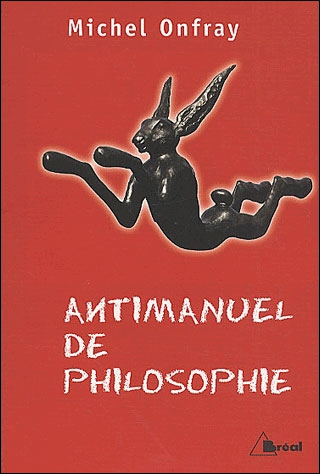 Oui, bien sûr. Du moins les médias de masse et la totalité du service public qui est franchement à la botte du pouvoir d'État. Depuis que Mitterrand a abandonné le socialisme au profit du libéralisme en 1983 puis le pacifisme au profit du bellicisme en 1991, l'idéologie dominante ne sépare plus la droite de la gauche, mais les libéraux d'État de droite et de gauche (Sarkozy, Juppé, Le Maire, NKM et Hollande, Valls, Macron) et les antilibéraux de droite et de gauche ( Le Pen, Guaino, Dupont-Aignan et Mélenchon, Besancenot, Arthaud). Les médias dominants roulent pour le libéralisme d'État de droite et de gauche, et je risque peu à prophétiser que le prochain chef de l'État sera issu de ce bloc-là. On changera de figure, mais pas de politique.
Oui, bien sûr. Du moins les médias de masse et la totalité du service public qui est franchement à la botte du pouvoir d'État. Depuis que Mitterrand a abandonné le socialisme au profit du libéralisme en 1983 puis le pacifisme au profit du bellicisme en 1991, l'idéologie dominante ne sépare plus la droite de la gauche, mais les libéraux d'État de droite et de gauche (Sarkozy, Juppé, Le Maire, NKM et Hollande, Valls, Macron) et les antilibéraux de droite et de gauche ( Le Pen, Guaino, Dupont-Aignan et Mélenchon, Besancenot, Arthaud). Les médias dominants roulent pour le libéralisme d'État de droite et de gauche, et je risque peu à prophétiser que le prochain chef de l'État sera issu de ce bloc-là. On changera de figure, mais pas de politique.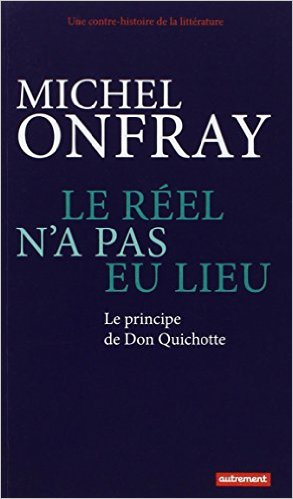 Il a absolument raison. Sauf qu'il y a des lieux où on ne peut pas faire passer son message, il s'agit de savoir lesquels. Comme ça n'est pas une science exacte, on peut se tromper. On ne le sait qu'après… Il arrive qu'on perde son temps dans une émission littéraire où les écrivains n'écrivent pas leurs livres alors qu'on le gagnera en allant sur un plateau a priori moins intellectuel mais sur lequel on aura pu dire deux ou trois choses.
Il a absolument raison. Sauf qu'il y a des lieux où on ne peut pas faire passer son message, il s'agit de savoir lesquels. Comme ça n'est pas une science exacte, on peut se tromper. On ne le sait qu'après… Il arrive qu'on perde son temps dans une émission littéraire où les écrivains n'écrivent pas leurs livres alors qu'on le gagnera en allant sur un plateau a priori moins intellectuel mais sur lequel on aura pu dire deux ou trois choses.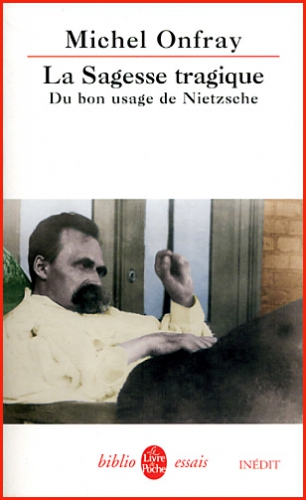 Cette phrase se trouvait dans un contexte qui me faisait dire une chose, puis donner un exemple pour l'illustrer. On a préféré s'exciter sur l'exemple plutôt que de disserter sur la thèse qui était: dans un pays où l'idéal est perdu, il n'est pas étonnant que des jeunes optent pour une idéologie clé en main - l'islam intégriste en l'occurrence. Vous connaissez ce proverbe chinois: «Quand le sage montre la lune, l'imbécile regarde le doigt». Sur les réseaux sociaux, on regarde beaucoup le doigt… Et les journalistes qui pensent désormais dans les formats épidermiques imposés par les réseaux sociaux emboîtent le pas. Ils disposent ainsi du buzz, premier bénéfice, puis, second bénéfice, le plus important, ils évitent le débat sur la thèse. De sorte qu'il était plus facile de faire de moi une personne qui salissait Hanouna que de s'interroger sur Hanouna comme symptôme. C'est la maladie qui est le problème, pas le symptôme. Hanouna a saisi l'occasion pour montrer du doigt le doigt qui montrait tout en ignorant même s'il y avait aussi la lune. Je lui ai fait un texto explicatif, il ne m'a pas répondu, tout à l'admiration de son doigt.
Cette phrase se trouvait dans un contexte qui me faisait dire une chose, puis donner un exemple pour l'illustrer. On a préféré s'exciter sur l'exemple plutôt que de disserter sur la thèse qui était: dans un pays où l'idéal est perdu, il n'est pas étonnant que des jeunes optent pour une idéologie clé en main - l'islam intégriste en l'occurrence. Vous connaissez ce proverbe chinois: «Quand le sage montre la lune, l'imbécile regarde le doigt». Sur les réseaux sociaux, on regarde beaucoup le doigt… Et les journalistes qui pensent désormais dans les formats épidermiques imposés par les réseaux sociaux emboîtent le pas. Ils disposent ainsi du buzz, premier bénéfice, puis, second bénéfice, le plus important, ils évitent le débat sur la thèse. De sorte qu'il était plus facile de faire de moi une personne qui salissait Hanouna que de s'interroger sur Hanouna comme symptôme. C'est la maladie qui est le problème, pas le symptôme. Hanouna a saisi l'occasion pour montrer du doigt le doigt qui montrait tout en ignorant même s'il y avait aussi la lune. Je lui ai fait un texto explicatif, il ne m'a pas répondu, tout à l'admiration de son doigt.

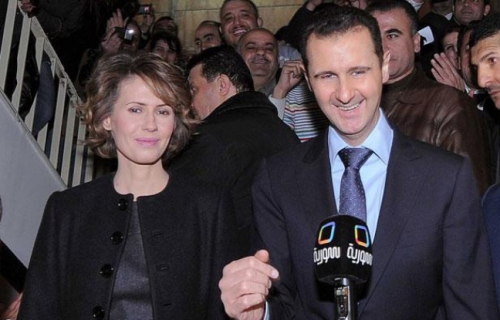




 Cette citation explique l’existence de l’affirmation, souvent entendue avec scepticisme : « l’islam est une religion de tolérance et d’amour ». Elle est surtout répandue dans le monde soufi ou son environnement dans certaines populations maghrébines ou turques.
Cette citation explique l’existence de l’affirmation, souvent entendue avec scepticisme : « l’islam est une religion de tolérance et d’amour ». Elle est surtout répandue dans le monde soufi ou son environnement dans certaines populations maghrébines ou turques.
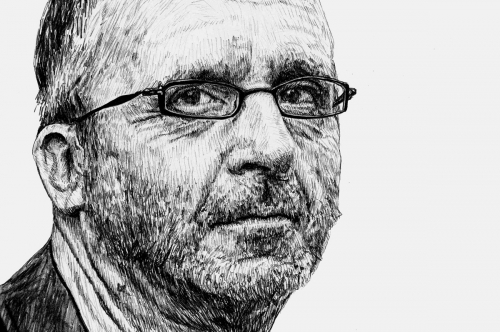


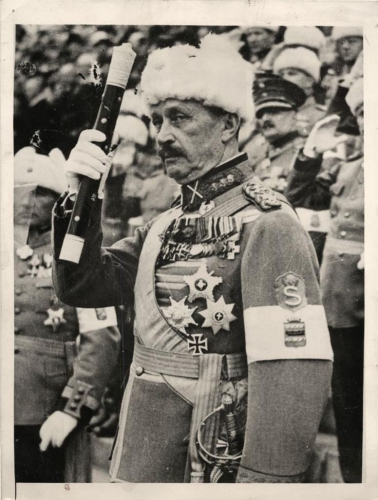

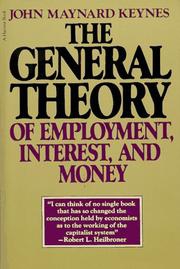 La desconexión con la realidad por parte de los inversores les llevaría a justificar la exuberancia irracional de los mercados, creándose un mundo virtual de especulación financiera que nada tendría que ver con la economía real (windhandel o negocio del aire) y que les lleva a extrapolar las rentabilidades actuales como un derecho vitalicio lo que unido a la pérdida de credibilidad de las agencias de calificación como Moody's al no haber predicho la crisis del 2002 y a la ausencia de control por parte de los reguladores, habría coadyuvado a que el mercado permaneciera insensible al recorte de rating de las compañías que cotizan en la bolsa y a los avisos de la Fed que por boca de su Presidenta Yanet Ellen habría advertido que “las valoraciones de las bolsas y los mercados de bonos son muy altas y que existen riesgos potenciales en ambos mercados”, Así, la certeza racional de la total retirada por la Fed de sus medidas de estímulo a la economía estadounidense y de la próxima subida de tipos de interés del dólar en el 2016 debería hacer que los inversionistas se vayan distanciado progresivamente de los activos de renta variable y que los bajistas se alzaran con el timón de la nave bursátil mundial.
La desconexión con la realidad por parte de los inversores les llevaría a justificar la exuberancia irracional de los mercados, creándose un mundo virtual de especulación financiera que nada tendría que ver con la economía real (windhandel o negocio del aire) y que les lleva a extrapolar las rentabilidades actuales como un derecho vitalicio lo que unido a la pérdida de credibilidad de las agencias de calificación como Moody's al no haber predicho la crisis del 2002 y a la ausencia de control por parte de los reguladores, habría coadyuvado a que el mercado permaneciera insensible al recorte de rating de las compañías que cotizan en la bolsa y a los avisos de la Fed que por boca de su Presidenta Yanet Ellen habría advertido que “las valoraciones de las bolsas y los mercados de bonos son muy altas y que existen riesgos potenciales en ambos mercados”, Así, la certeza racional de la total retirada por la Fed de sus medidas de estímulo a la economía estadounidense y de la próxima subida de tipos de interés del dólar en el 2016 debería hacer que los inversionistas se vayan distanciado progresivamente de los activos de renta variable y que los bajistas se alzaran con el timón de la nave bursátil mundial.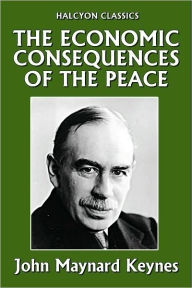
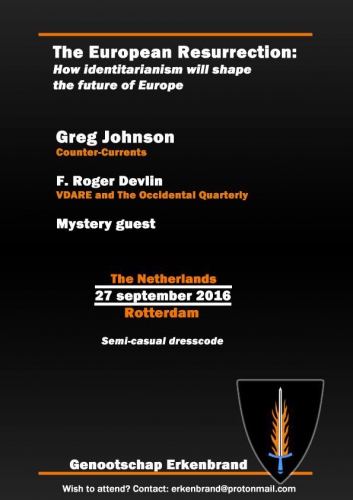
 We have set up Erkenbrand for exactly this purpose, to bring people together. We are organized as a study society where we can have intellectual discussions each month about subjects related to our current situation, and more importantly socialize and make new friends. We started off small, but we are growing rapidly. We aim to bring together like-minded people who work together to further our cause: not only politically, but also to build a tight-knit group of men who can count on each other.
We have set up Erkenbrand for exactly this purpose, to bring people together. We are organized as a study society where we can have intellectual discussions each month about subjects related to our current situation, and more importantly socialize and make new friends. We started off small, but we are growing rapidly. We aim to bring together like-minded people who work together to further our cause: not only politically, but also to build a tight-knit group of men who can count on each other.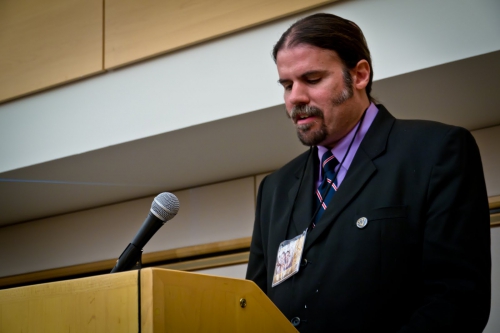
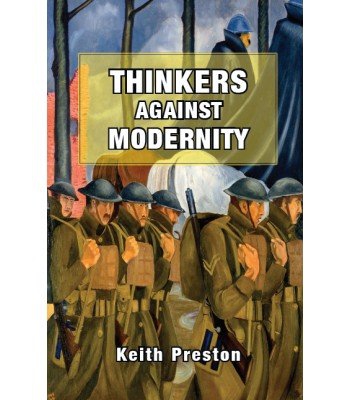 How the book is an examination of thinkers critical of modernity from a value neutral perspective
How the book is an examination of thinkers critical of modernity from a value neutral perspective